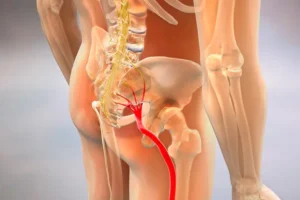
Have you ever wondered why your back hurts at the end of the day, even if you're not carrying anything heavy? The answer often lies in how you sit, how you work and how you move without realizing it. And here's the kicker: small daily bad postures can turn into big physical problems if you don't correct them in time.
In this article, we explain in a clear manner why your posture at work is so important, how it affects your body and what you can do - starting today - to improve it.
What is posture and why does it matter?
The position is the way your body is supported while standing, sitting or moving. Good posture distributes weight evenly, allowing muscles to work without overload. But poor posture (e.g., slouching at a desk or with your head too far forward) leads to muscle tension, compression of the vertebrae and fatigue.
This especially affects the Latino workers in North Carolinawho spend hours in manual labor or in front of a computer, often without adequate furniture or knowledge of how to use a computer. ergonomics.
Common problems due to poor posture
- Postural back painespecially in the lumbar area
- Neck and shoulder stiffness
- Tension headache
- Constant fatigue and low concentration
- Increased risk of muscle injuries
According to a study published in Applied Ergonomics, improving ergonomics and posture reduces physical discomfort in office and manual workers by up to 60% (read it here).
Tips to improve your posture at work
🪑 1. Adjust your workstation.
- Keep the screen at eye level
- Sit with your back straight and your feet flat on the floor.
- Use a chair with lumbar support (place a towel if you don't have one).
2. Take active breaks
Every 30-45 minutes, get up, stretch your arms and walk around a bit. This activates circulation and prevents muscles from tightening.
3. Strengthen your body awareness
Learn to notice when you're slouching. You can set an alarm or leave a note on your desk that says, "Are you straight?"
Can a chiropractor help you?
Yes, a chiropractor can detect misalignments in your spine caused by poor posture and correct them with gentle adjustments. He or she will also give you practical recommendations for taking care of your body at work and at home.
If you want to know how an adjustment works, we invite you to read:
What is chiropractic and how does it work for pain?
Conclusion: your position is your power
You don't need to wait until you have severe pain to start improving your posture. Your body gives you signals every day: listen to it. With small changes and the guidance of a professional, you can prevent discomfort, feel more energetic and perform better at work.




